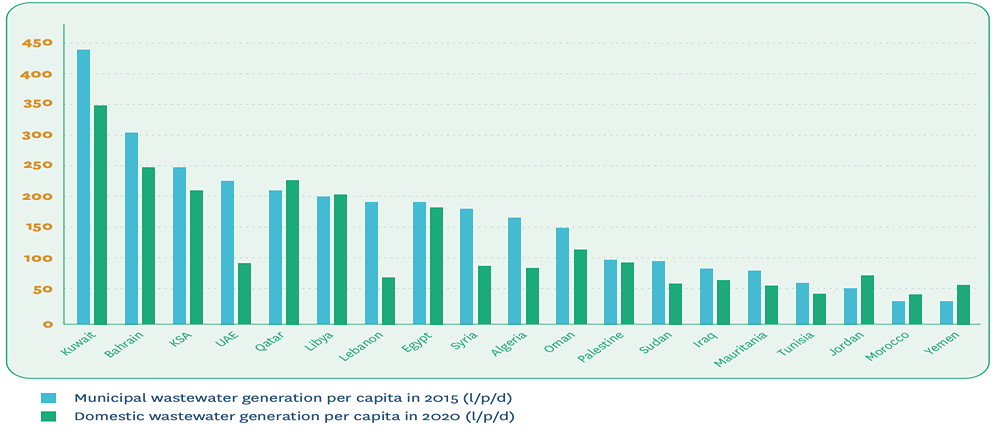Water Reuse in the Middle East and North Africa: A Sourcebook by IWMI

Per capita municipal and domestics wastewater generation in MENA countries.
©IWMI
Water stress in the MENA region, measured as water withdrawals as a percentage of total renewable surface freshwater availability,3 is greater than in any other region in the world. Currently, the average per capita renewable water resources availability is 10 times less than the worldwide average. Water reuse has great potential to help overcome some of the challenges posed by the increasing pressure on already stressed water resources. Wastewater is the only source of water that increases as population and water use grow. Currently, the MENA region1 produces around 21.5 billion cubic meters (BCM) of nutrient-rich municipal wastewater per year.
Since 1990, the number of water reuse projects has doubled every decade. Nevertheless, the potential for resource recovery from municipal wastewater in the MENA region is still untapped. MENA needs to overcome the barriers to more and safer water reuse and accelerate the replication of successful reuse cases.
In this sourcebook, developed by IWMI with technical support from FAO and Arab Water Council (AWC), the most recent available data have been collected to review the state of water reuse in the region, and policy recommendations are made to address the challenges that obstruct the potential of water reuse. A number of successful water reuse cases have been selected and analyzed to encourage replication.
The sourcebook highlights the main factors that will contribute positively to inclusive scaling and replication of safe water reuse projects such as: participatory stakeholder processes and effective communication that improves acceptability; economic and finance models that improve cost recovery and sustainability; effective and harmonic policies that address institutional fragmentation; adequate regulations that are ambitious but affordable; safety measures from farm to fork; and gender mainstreaming in water reuse projects and policies that ensures equitable participation and benefit sharing.
To download the sourcebook, kindly visit the following link: Water reuse in the Middle East and North Africa
